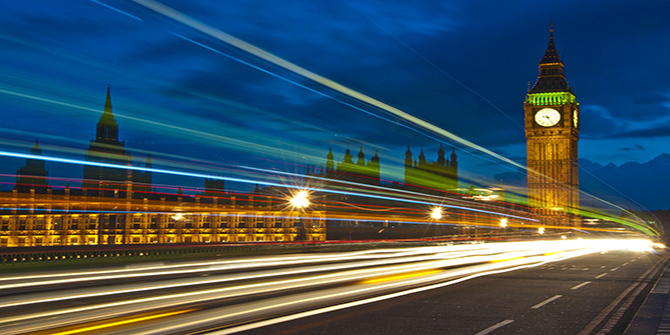 Labour is in a difficult situation as it looks to elect a new leader. It desperately needs the big, militant unions to back off and not taint their next leader by treating him or her as their puppet. To the unions, on the other hand, it’s vital that they not allow the next Labour leader to ignore their concerns, writes Steve Coulter.
Labour is in a difficult situation as it looks to elect a new leader. It desperately needs the big, militant unions to back off and not taint their next leader by treating him or her as their puppet. To the unions, on the other hand, it’s vital that they not allow the next Labour leader to ignore their concerns, writes Steve Coulter.
Why, when trade unionists account for only about 15 per cent of the electorate, are unions playing such a big role in the Labour Party’s leadership contest? This week Unite’s General Secretary, Len McCluskey, threw the cat among the pigeons by threatening to withdraw his union’s support if Labour doesn’t elect the ‘correct’ leader. His remarks drew a stinging rebuke from senior Labour figures on the centre-right. Would the boss of Tesco saying he didn’t rate David Cameron have the same effect on the Conservative Party? Probably not.
The easy answer to the above question is that unions founded the Labour Party in the late nineteenth century and continue to provide about two thirds of its funding. Together, they are often referred to as the political and industrial wings of the labour movement and the relationship is fractious, but pivotal. Why, then, is the Blairite wing of the party condemning McCluskey’s intervention and openly calling for Labour to distance itself from the unions and seek alternative backing?
The dispute boils down to political calculations over where Labour went wrong in its election campaign and what it has to do to rebuild its appeal nationwide. The unions feature prominently in this debate as, to opposing wings of the party, they represent either the solution to its lack of appeal with voters, or the problem itself. If, as the Blairites contend, Labour lost because it was seen as too left-wing then electing McCluskey’s anointed candidate – which appears to be former Health Secretary Andy Burnham – is another strategic blunder.
While unions are no longer feared as agents of industrial strife, Labour’s closeness to them may still carry electoral penalties if it fits into a hostile narrative of them as being opponents of enterprise and wealth creation. On the other hand, if Labour lost because it moved too far from its core working class constituencies in Scotland and the North of England then union backing is arguably essential.
History suggests that general elections are won or lost on the centre-ground. It is surprising how often professional politicians forget this. Blairites point out that it took four defeats with left-wing leaders in the 1980s and 1990s before Labour was re-elected in 1997. The Conservatives went through two uninspiring leaders and a lot of unappealing right-wing posturing before regaining power in 2010.
While it is often argued that it is the UK’s first-past-the-post political system that is responsible for ‘strong’, multi-term governments, an equally important factor is often the irrational behaviour of oppositions. Robert Dahl argued that beaten parties tend to respond to defeat with denial, blaming the electorate for not being in tune with their programme rather than the programme itself. Defeat wipes out the forces of moderation, leaving parties dominated by activists and zealots. It can take a surprisingly long time in the wilderness before moderate factions are strong enough to pull parties back towards the decisive centre-ground and the more extreme elements recover their taste for government.
Again, the comparison with Blair is instructive. Blair was never liked by the unions. But they eventually realised he was their best, possibly only, hope of securing a Labour government. Battered by successive defeats and Margaret Thatcher’s anti-union onslaughts they reluctantly made their pact with the devil and put up with being ignored and slighted by Blair in return for a limited slate of collectivist reforms.
While the minimium wage, European Social Charter and legislation on union recognition were considered unadventurous by the unions, they were viewed as better than nothing and certainly would not have been enacted under the Conservatives. New Labour’s relationship with the trade unions began to break down towards the middle of the decade, however, and the financial crisis and recession tarnished Blair’s version of a pro-market social democracy and appear to have erroneously convinced Miliband that the median voter had shifted leftwards.
On this reading, it’s time for the big unions to be put back in their box in order to let a moderate New-ish Labour leadership commence the task of reclaiming the political centre, a task made all the more urgent as the Conservatives appear to be gearing up for a new confrontation with the unions over strike ballots which could produce unwelcome fallout for Labour if it sidles up to Unite.
But is this likely? The signs are not obvious that either Party or unions are ready to return to the uneasy consensus of the Blair years. The argument that Labour lost by being too left-wing is not self-evidently true. Labour probably lost in England for this reason but in Scotland it was outflanked to the left by the SNP. Blair had been able to drag Labour to the right in the 1990s partly because of the absence of an alternative party to Labour, but the SNP now provide just such an alternative and Unite in Scotland is already seeking a change of rules to allow it to donate money to the nationalists instead of Labour.
The position of the leadership itself is also more important than before, raising the stakes. Ironically, Blair’s reforms to party structures in the 1990s – by cutting the union bloc vote, reducing their representation on the party’s governing NEC and ability to shape manifestos – removes most of the other mechanisms by which unions can influence a Labour government. This makes it all the more important they have the ‘correct’ person in charge. Ed Miliband’s attempt to weaken the hold of unions on party leadership elections by abandoning the bloc vote and going for individual representation look to have backfired. Unions are able to sign up trade unionists as ‘affiliated members’ in order to provide voting fodder for their preferred candidate.
Labour is therefore in a tricky situation. It desperately needs the big, militant unions to back off and not taint their next leader by treating him or her as their puppet. To the unions, on the other hand, it’s vital that they not allow the next Labour leader to ignore their concerns and they may well be prepared to give the core-vote strategy one more throw of the dice.
Note: This article gives the views of the authors, and not the position of the British Politics and Policy blog, nor of the London School of Economics. Please read our comments policy before posting. Featured image credit: Andrew Skudder CC BY-SA 2.0
 Steve Coulter is LSE Fellow in the Political Economy of Europe in the LSE’s European Institute. He is the author of ‘New Labour Policy, Industrial Relations and the Trade Union’, published by Palgrave. He can be reached at s.coulter1@lse.ac.uk
Steve Coulter is LSE Fellow in the Political Economy of Europe in the LSE’s European Institute. He is the author of ‘New Labour Policy, Industrial Relations and the Trade Union’, published by Palgrave. He can be reached at s.coulter1@lse.ac.uk







